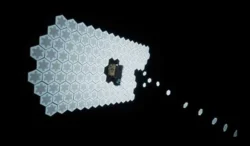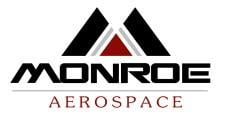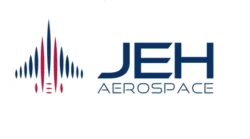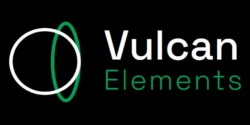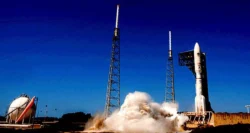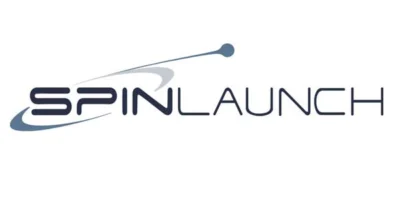
LONG BEACH, CA - Aug 19, 2025 (UTC) - SpinLaunch, a pioneering aerospace company revolutionizing space access, today announced the close of an $11 million Series C funding round. The round, led by ATW Partners and supported by existing investors including Kleiner Perkins, GV, and Lauder Partners, will fuel the continued development of SpinLaunch’s innovative kinetic launch system. Despite falling short of initial expectations, this funding marks a critical step in scaling the company’s technology to deliver cost-effective and sustainable access to Low Earth Orbit (LEO) for small satellites.
Funding Details
The Series C funding round raised $11 million, led by ATW Partners, with participation from existing investors such as Kleiner Perkins, GV, ATMA Capital, ONA Capital, Lauder Partners, McKinley Capital, Tyche Partners, John Doerr, Brook Byers, Asher Delug, Chuck Brady, Andrew Farkas, and Greg McAdoo. The round, which includes both equity and debt, brings SpinLaunch’s total funding to $161 million. While the amount was lower than anticipated, it provides essential capital to advance the company’s mission of redefining space launch technology.
Strategic Goals and Use of Funds
SpinLaunch will allocate the $11 million to achieve the following strategic objectives:
- Kinetic Launch System Development: Advance the Suborbital Mass Accelerator at Spaceport America, New Mexico, to achieve commercial-scale launches.
- Satellite Product Line Expansion: Develop and refine satellite hardware tailored for kinetic launch, focusing on durability and compatibility.
- Environmental Sustainability: Enhance the system’s eco-friendly design to minimize the carbon footprint of space launches.
- Team Expansion: Grow engineering and operational teams to support testing and commercialization efforts.
- Commercial Launch Preparation: Prepare for orbital launches by 2026, targeting the growing demand for small satellite constellations.
Historical Funding and Growth
SpinLaunch has raised $161 million across multiple rounds since its founding in 2014. Below is a summary of its funding history:
| Round | Year | Amount Raised | Valuation | Lead Investors |
|---|---|---|---|---|
| Seed | 2018 | $40M | Not disclosed | Airbus Ventures, Kleiner Perkins |
| Series A | 2019 | $35M | Not disclosed | Not disclosed |
| Series B | 2022 | $75M | Not disclosed | ATW Partners |
| Series C | 2025 | $11M | Not disclosed | ATW Partners |
SpinLaunch has grown its team to over 100 employees and completed multiple suborbital test flights at Spaceport America. The company was named one of TIME Magazine’s most innovative companies in 2022, reflecting its progress in developing a sustainable alternative to traditional rocket launches.
SpinLaunch’s Technology
SpinLaunch’s kinetic launch system uses a ground-based, electric-powered mass accelerator to propel payloads into Low Earth Orbit (LEO). Unlike traditional chemical rockets, the system spins payloads at high speeds in a vacuum chamber before releasing them, significantly reducing fuel costs and environmental impact. The technology is designed to launch small satellites (up to 200 kg) at a fraction of the cost of conventional methods, offering high-cadence, responsive access to space. The Suborbital Mass Accelerator at Spaceport America has demonstrated successful test flights, validating the system’s potential.
Industry Impact and Challenges
SpinLaunch’s technology has the potential to disrupt the $8 billion small satellite launch market by offering a low-cost, environmentally sustainable alternative to traditional rockets. Its system could enable rapid deployment of satellite constellations for communications, Earth observation, and scientific research. However, the company faces challenges in scaling its technology to achieve consistent orbital launches, navigating regulatory approvals, and competing with established players like SpaceX and Rocket Lab. Demonstrating reliability and payload safety remains critical to gaining market trust.
Market Context and Industry Trends
The $11 million Series C round reflects cautious investor sentiment in the aerospace sector, where funding has tightened compared to 2024’s $255 million raise by Celestial AI and $600 million by Saronic Technologies. The global space launch market is projected to reach $30 billion by 2030, driven by demand for small satellite constellations. SpinLaunch’s kinetic approach aligns with the industry’s shift toward sustainable and cost-effective solutions, but its funding shortfall highlights challenges for innovative startups competing with well-funded incumbents like SpaceX and Blue Origin.
Stakeholder Perspectives
- David Wrenn, CEO of SpinLaunch: “This funding enables us to push forward with our kinetic launch system, offering a sustainable and affordable path to space. We’re focused on achieving orbital launches by 2026.”
- ATW Partners Representative: “SpinLaunch’s innovative technology has the potential to redefine space access. We’re proud to lead this round and support their vision for sustainable launches.”
Stakeholder Insights
Investors remain optimistic about SpinLaunch’s long-term potential, despite the smaller-than-expected raise. The company’s focus on sustainability and cost reduction aligns with growing demand for eco-friendly space solutions. Analysts note that SpinLaunch must demonstrate consistent orbital success to compete with traditional rocket providers. The involvement of prominent investors like Kleiner Perkins and GV signals confidence in the technology, but the funding gap suggests a need for stronger validation of commercial viability.
About SpinLaunch
Founded in 2014 by Jonathan Yaney, SpinLaunch is a Long Beach, California-based aerospace company developing the world’s first kinetic launch system. Headquartered in Long Beach with operations at Spaceport America, New Mexico, SpinLaunch aims to provide low-cost, sustainable access to Low Earth Orbit for small satellites. Backed by leading investors like ATW Partners, Kleiner Perkins, and GV, the company is on track to achieve commercial orbital launches by 2026.
Future Outlook
SpinLaunch is poised to advance its kinetic launch system, with plans to conduct additional suborbital tests in 2025 and achieve orbital launches by 2026. The $11 million raise, while modest, provides critical runway to refine its technology and expand its satellite product line. As the small satellite market grows, SpinLaunch’s sustainable approach could capture significant market share, provided it overcomes technical and regulatory challenges. The company’s focus on eco-friendly launches positions it to meet the rising demand for sustainable space solutions.
Media Contact
For more information, please contact:
Email: press@spinlaunch.com
Website: www.spinlaunch.com
